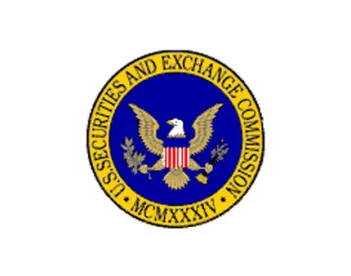On October 16, the Securities and Exchange Commission adopted amendments (the Amendments) to its long-standing auditor independence rules. The Amendments, which largely mirror the amendments proposed in December 2019, reflect updates based on recurring fact patterns and related SEC staff consultations, respond to recent changes in capital market conditions and modify certain aspects of the auditor independence framework set forth in Rule 2-01 of Regulation S-X (Rule 2-01). Rule 2-01, among other things, requires auditors to be independent of their audit clients “both in fact and in appearance.” As previously described in the January 17, 2020 edition of Corporate & Financial Weekly Digest, Rule 2-01(b) sets forth the general standard for auditor independence, while Rule 2-01(c) provides an illustrative list of relationships and circumstances in which an accountant would not be considered independent, including certain financial, employment, business and other relationships between the auditor and the audit client.
In the SEC’s press release announcing the Amendment, SEC Chairman Jay Clayton notes that the Amendments “reflect the Commission’s long-recognized view that an audit by an objective, impartial, and skilled professional contributes to both investor protection and investor confidence,” and that the modernized auditor independence requirements under the Amendments will “increase investor protection by focusing audit clients, audit committees, and auditors on areas that may threaten an auditor’s objectivity and impartiality.” The SEC’s press release also indicates that the staff has, over the years and during the course of consultations, been made aware of certain relationships and services that technically constituted independence rule violations under the existing Rule 2-01 (before the Amendments), even though the auditor’s objectivity and impartiality was not necessarily impaired. As highlighted in the fact sheet included with the press release, the Amendments, among other things:
-
amend the definitions of “affiliate of the audit client” in Rule 2-01(f)(4) and “investment company complex” in Rule 2-01(f)(14), which terms are used in the definition of “audit client” in Rule 2-01(f)(6). An “audit client” generally consists of “the entity whose financial statements or other information is being audited, reviewed or attested” (sometimes referred to as the “entity under audit”) and each “affiliate of the audit client” and includes entities “under common control with the audit client” (sometimes referred to as “sister entities”), as well as “each entity in the investment company complex when the audit client is an entity that is part of an investment company complex” (sometimes referred to as “ICCs”). The Amendments replace the term “audit client” with “entity under audit” in Rule 2-01(f)(4)(i) and Rule 2-01(f)(4)(ii) to avoid confusion in applying the control tests used to determine whether an entity is an “affiliate of the audit client” and include in the definition of “audit client” a dual materiality qualifier, which gives the auditor discretion to determine whether both (a) a sister company (including a sister company within an ICC) is material to the controlling entity; and (b) the entity under audit is material to the controlling entity. The SEC noted in the Amendments that, “if either the sister entity or the entity under audit is not material to the controlling entity, then the sister entity will not be deemed an affiliate of the audit client.” To understand the practical impact of these changes, the adopting release for the Amendments includes examples that illustrate the application of the Amendments to various factual scenarios;
-
amend the definition of the “audit and professional engagement period” in Rule 2-01(f)(5)(iii) to shorten the look-back period during which domestic first-time filers must assess and ensure their auditor’s independence from three years to one year (i.e., the immediately preceding fiscal year), which results in all first-time filers (both domestic issues and foreign private issuers) being treated the same for this purpose, as there was a one-year look-back period for foreign private issuers before the Amendments;
-
add certain student loans and de minimis consumer loans to the categorical exclusions from independence-impairing lending relationships set forth in Rule 2-01(c);
-
amend the business relationship rule in Rule 2-01(c)(3) (which prohibits the accounting firm or any covered person from, at any point during the audit and professional engagement period, “having any direct or material indirect business relationship with an audit client, or with persons associated with the audit client in a decision-making capacity,” including, among others, substantial stockholders of an audit client) to replace the reference to “substantial stockholders” with the concept of “beneficial owners (known through reasonable inquiry) of the audit client’s equity securities where such beneficial owner has significant influence over the entity under audit”; and
-
replace the transition and grandfathering provision in Rule 2-01(e) with a transition framework to address inadvertent independence violations that only arise as a result of a “corporate event,” such as a merger or acquisition transaction (other than merger or acquisition transactions that are in substance similar to IPOs, such as a merger between a shell company and a private operating company), which new framework provides that the auditor’s independence is not impaired so long as (a) the services or relationships that would otherwise be the basis for the violation were not prohibited prior to the effective date of the corporate event; (b) the auditor corrects the independence violations arising from the corporate event as promptly as possible and, in any event, no later than six months following the closing of the corporate event; and (c) the auditor has a quality control system to monitor the audit client’s corporate events and related activities to promptly identify any potential independence violations before the closing of the corporate event.
The Amendments become effective 180 days after publication in the Federal Register, although voluntary early compliance is permitted after the Amendments are published in the Federal Register but prior to the effective date if the registrant complies with the Amendments in their entirety from the date of such early compliance.
The Amendments are available here, and the press release and fact sheet are available here.





 />i
/>i

